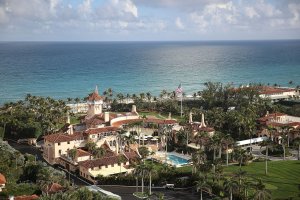Interior Secretary Ryan Zinke defended his surprise decision to exempt Florida waters from the Trump administration’s push for new offshore drilling, saying in an exclusive interview with CNN that the state’s coastline is unique.
“The coastal currents are different, the layout of where the geology is,” Zinke said Sunday.
Critics have called his decision to exempt Florida’s waters from the Trump administration’s plan for new US offshore oil drilling political favoritism to benefit Republican Gov. Rick Scott. It came just days after the proposal for new drilling off most of the US coastline was announced.

“In the case of Florida, the governor asked first for an immediate meeting and every member on both sides of the aisle contacted my office, wrote letters on it. So Florida is unique. As well as every other state has theirs,” Zinke said.
“Not every state has all the members against it and the geology is different, the currents are different and so looking at it, we’re going to take the process, go through it, meet with every governor personally,” he added.
Scott’s opposition came as Zinke was still unveiling the plan in a conference call with reporters. Zinke and Scott subsequently met, and then Zinke announced he was “removing Florida from consideration for any new oil and gas platforms.”
“I support the governor’s position that Florida is unique and its coasts are heavily reliant on tourism as an economic driver,” Zinke said at the time.
Many Republican and Democratic officials from other states also voiced opposition to drilling off their own shores. California Attorney General Xavier Becerra, for example, said in response, “California is also ‘unique.’ ”
“If that’s your standard, we, too, should be removed from your list. Immediately,” Becerra said.
The final product, Zinke said, will reflect “our energy needs as a country,” as well as input from coastal communities. “Let’s make sure the states have a voice, let’s make sure the people have a voice,” he said.
“Our plan was to open up everything,” he said. “Take a look and show Americans what potential we have. And then work with the governors, work with all the stakeholders, the House, the Senate and shape the plan.”
The office responsible for analyzing the plan, the Bureau of Ocean Energy Management, is still conducting its work. Director Walter Cruickshank told lawmakers last week that Zinke has not asked him to remove Florida from the plan.
Another factor in his decision, Zinke noted, is an offshore drilling moratorium that bans drilling in the eastern Gulf of Mexico through 2022.
He has spoken with at least eight coastal governors and plans to meet with them and others in the coming months.
“I’ve had great conversations with the governors and I’ve committed to meet them personally, as I should as the secretary: Go to the coastline, meet with the fishermen, meet with all the stakeholders and make sure the state and local voice is heard.”
The plan will take about a year to finalize, Zinke said.












